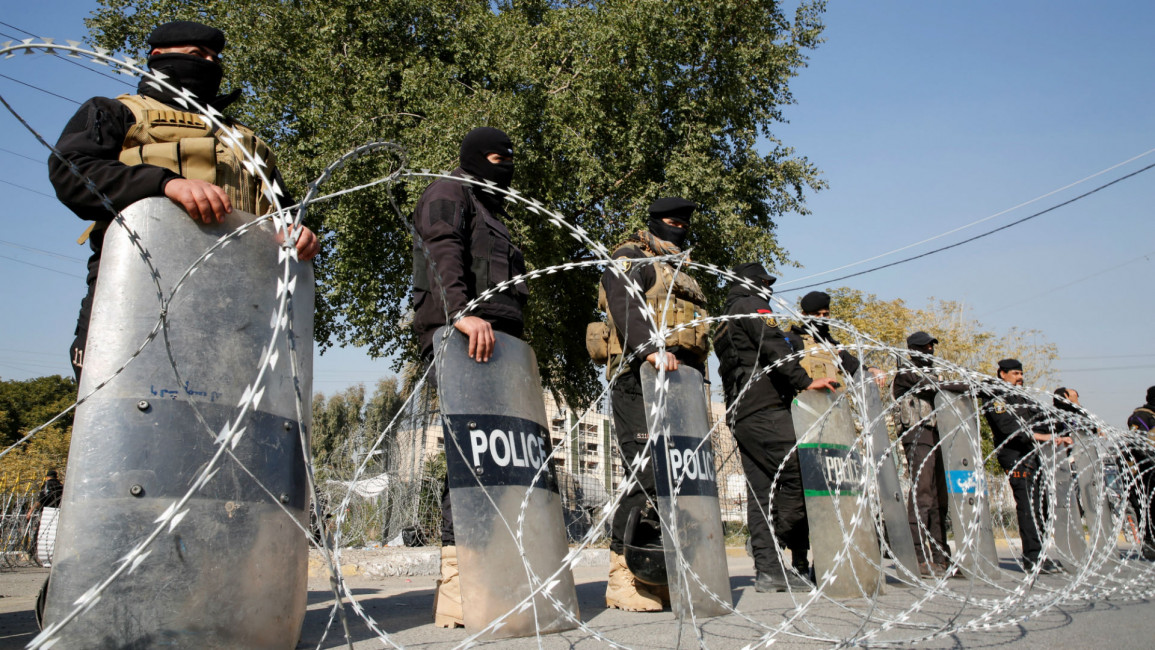Brotherly love: Iraq interior minister orders arrest of brother
Qasim al-Araji ordered police on Wednesday to detain his brother on corruption charges after word got out that he was exploiting his brother's ministerial post to promise promotions within the police force in exchange for bribes.
"Araji stressed the importance of loyalty to the nation and that the interior ministry was dedicated to working without nepotism and patronage," read a statement issued by the Badr Organisation parliamentary bloc - Araji's political party.
"The ministry is determined to punish anyone claiming to be related or close to [the minister] and exploiting this relationship for illegal purposes" it added.
Police sources told The New Arab that Araji's brother was being held in a police station in downtown Baghdad and that the arrest had been made after news his alleged corrupt activity had leaked.
In January, Iraqi lawmakers voted in favour of Araji filling the vacant position of minister of interior, a key post left vacant since last year.
Rampant corruption, cronyism and a lack of security have been the driving forces behind anti-government protests that kicked off last year in Iraq.
Hundreds of supporters of Iraqi cleric Moqtada al-Sadr demonstrated in Baghdad on Wednesday to demand electoral reform ahead of a planned provincial vote in September.
The former interior minister Mohammed Ghabban tendered his resignation last July after a suicide car bomb hit a shopping centre in Baghdad, killing 323 people - one of the deadliest such attacks to ever hit the country.
In his resignation, Ghabban put the blame on Iraqi's flawed security system, accusing the government of doing little to prevent such attacks and stating that checkpoints were "absolutely useless."



